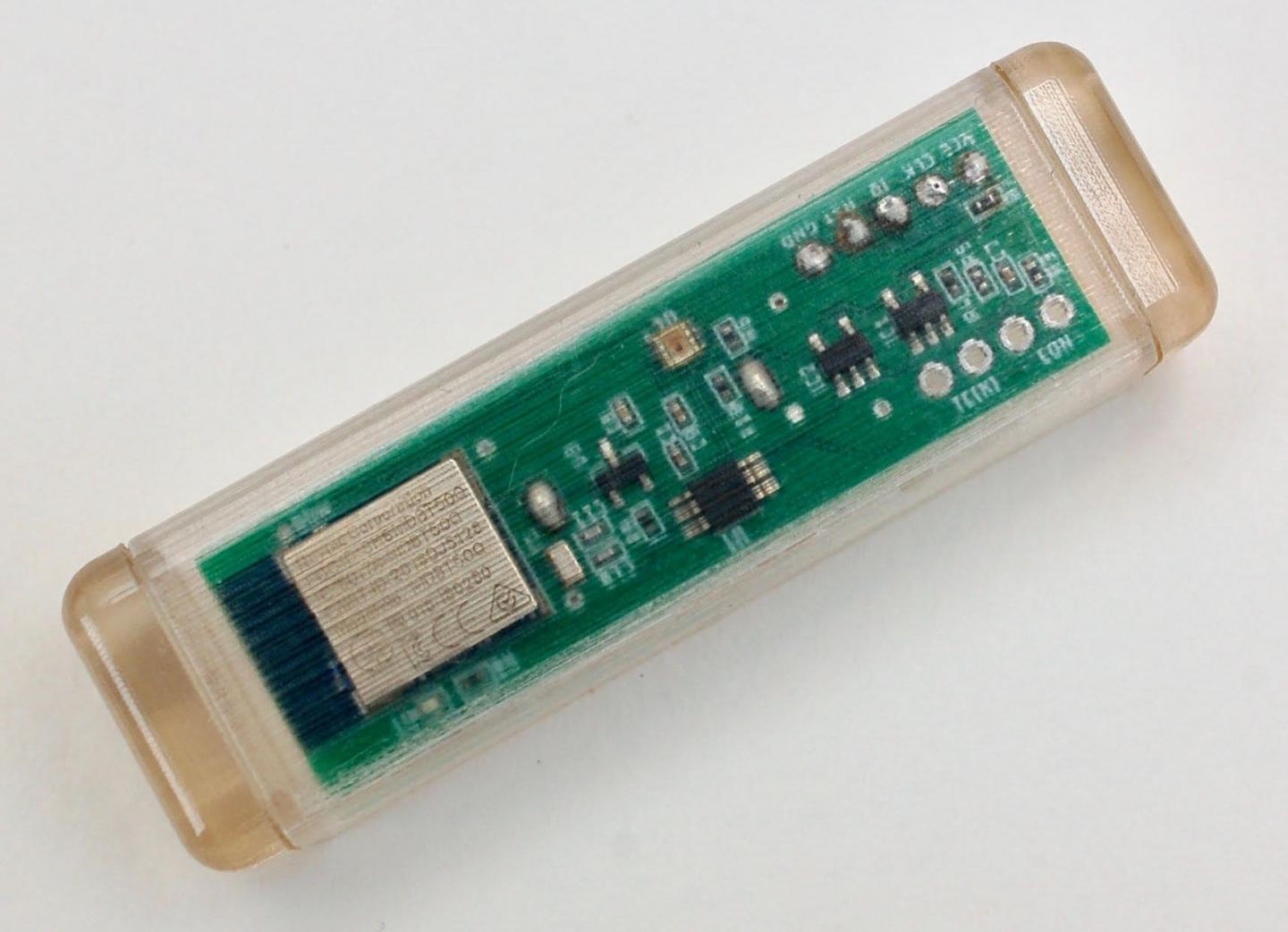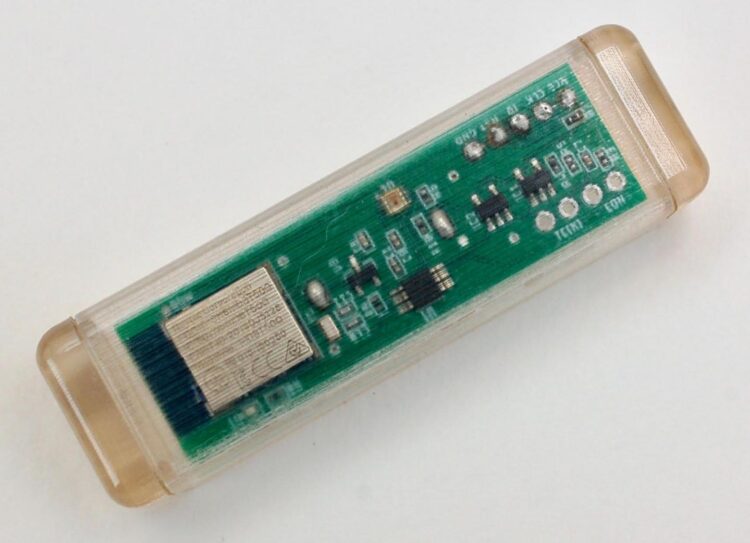
Credit: Dmitry Isakov
Miniaturized computer systems and wireless technology are offering scientists new ways to keep tabs on reactions without the need for larger, cumbersome equipment. In a proof-of-concept study in ACS Sensors, researchers describe an inexpensive new device that functions like a conventional magnetic stir bar, but that can automatically measure and transmit information on a solution’s color, viscosity and a variety of other attributes to a smart phone or computer.
Automatic, remote data collection can make chemical processes more reliable, as well as less labor intensive and safer. This technology has begun to make inroads into chemistry labs, but options for scientists looking to remotely mix their reactions and monitor several parameters while those reactions occur remain quite scarce, limited and expensive. Nikolay Cherkasov, Dmitry Isakov and colleagues wanted to develop a device capable of simultaneously detecting numerous parameters using freely available open source software and easy-to-get, inexpensive components.
The team made two versions of the Smart Stirrer based on different integrated circuits, one a microcontroller and the other an all-in-one system on a chip. To customize the Smart Stirrer for different applications, the team used a modular design, in which sensors can be added as needed. In experiments, they confirmed they could detect color, electrical conductivity and, with careful calibration, viscosity. Additional low-cost commercially available sensors, as well as custom ones, could be used to adapt the device for many new applications, the researchers say. They note one limitation: the narrow range of temperatures within which the Smart Stirrer can function, a restriction that they say is inherent to most digital electronics. Ultimately, they predict that this approach could provide a platform for digitizing chemistry in research labs and industrial manufacturing.
###
The authors acknowledge funding from the Engineering and Physical Sciences Research Council Dial-a-Molecule Network, the Institution of Chemical Engineers Andrew Fellowship and the Warwick Manufacturing Group Summer Internship Programme.
The abstract that accompanies this paper can be viewed here.
The American Chemical Society (ACS) is a nonprofit organization chartered by the U.S. Congress. ACS’ mission is to advance the broader chemistry enterprise and its practitioners for the benefit of Earth and its people. The Society is a global leader in providing access to chemistry-related information and research through its multiple research solutions, peer-reviewed journals, scientific conferences, eBooks and weekly news periodical Chemical & Engineering News. ACS journals are among the most cited, most trusted and most read within the scientific literature; however, ACS itself does not conduct chemical research. As a specialist in scientific information solutions (including SciFinder® and STN®), its CAS division powers global research, discovery and innovation. ACS’ main offices are in Washington, D.C., and Columbus, Ohio.
To automatically receive press releases from the American Chemical Society, contact [email protected].
Follow us: Twitter | Facebook
Media Contact
Katie Cottingham
[email protected]





